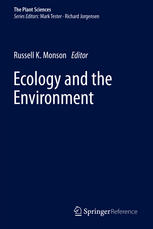

Most ebook files are in PDF format, so you can easily read them using various software such as Foxit Reader or directly on the Google Chrome browser.
Some ebook files are released by publishers in other formats such as .awz, .mobi, .epub, .fb2, etc. You may need to install specific software to read these formats on mobile/PC, such as Calibre.
Please read the tutorial at this link: https://ebookbell.com/faq
We offer FREE conversion to the popular formats you request; however, this may take some time. Therefore, right after payment, please email us, and we will try to provide the service as quickly as possible.
For some exceptional file formats or broken links (if any), please refrain from opening any disputes. Instead, email us first, and we will try to assist within a maximum of 6 hours.
EbookBell Team

4.7
16 reviewsIn this book, plant biology is considered from the perspective of plants and their surrounding environment, including both biotic and abiotic interactions. The intended audience is undergraduate students in the middle or final phases of their programs of study. Topics are developed to provide a rudimentary understanding of how plant-environment interactions span multiple spatiotemporal scales, and how this rudimentary knowledge can be applied to understand the causes of ecosystem vulnerabilities in the face of global climate change and expansion of natural resource use by human societies. In all chapters connections are made from smaller to larger scales of ecological organization, providing a foundation for understanding plant ecology. Where relevant, environmental threats to ecological systems are identified and future research needs are discussed. As future generations take on the responsibility for managing ecosystem goods and services, one of the most effective resources that can be passed on is accumulated knowledge of how organisms, populations, species, communities and ecosystems function and interact across scales of organization. This book is intended to provide some of that knowledge, and hopefully provide those generations with the ability to avoid some of the catastrophic environmental mistakes that prior generations have made.